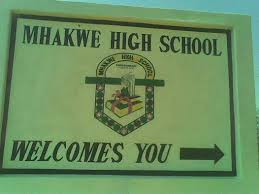
By Muchadeyi Ashton Masunda ON Tuesday July 19, 2022, Zimbabweans woke up to the numbing news about the sudden death of Minister of State for Harare Metropolitan Provincial Affairs and Devolution Oliver Mandishona Chidawu as a result of cardiac complications at a comparatively tender age of 68 years.
The brief background of my tribute to “OMC1”, as we used to affectionately call him, is that I had the privilege and pleasure of working very closely with him as well as Ngoni Kudenga (“NK”) and the now late Douglas Tawanda Munatsi (“DTM”) from inception of Heritage Investment Bank (“HIB”) in 1995 on the back of Heritage Insurance Company, which was founded by OMC1.
HIB was to all intents and purposes the baby of OMC1, the ultimate and intrepid entrepreneur, who ventured into waters previously uncharted by indigenous Zimbabweans during our country’s First Republic.
OMC1 had the amazing knack of selecting people with the capacity and ability as well as the necessary personal traits which would help him to accomplish a number of commendable and lofty goals which he had set out to achieve in the fiercely competitive corporate sector.
That is how the four of us came to be the founding directors and shareholders of HIB with OMC1 as the chairman and majority shareholder, DTM as the managing director and a fairly significant shareholder whilst NK and I came on board as non-executive directors and minority shareholders.
The primary role for NK and I was to use our respective backgrounds and networks in the accounting and legal professions to make sure that all the deals which OMC1 and DTM brought into HIB were kosher.
OMC1 was a hail and hearty fellow with a raucous and infectious laugh. In 1996, he quickly established quite a solid rapport with Philip Michael Baum (PMB), the then newly-appointed CEO of Anglo American Corporation (AAC) in Zimbabwe.
Following the advent of Uhuru in South Africa, the Anglo American Corporation Group made a fundamental decision to disinvest from all non-core businesses in the Sadc region and relocate its corporate domicile from Johannesburg to London in the UK in order to have access to infinitely larger and better financial and capital markets and thus, be able to explore and exploit huge mining assets such as the copper deposits in Chile and the iron ore deposits in Brazil.
- Chamisa under fire over US$120K donation
- Mavhunga puts DeMbare into Chibuku quarterfinals
- Pension funds bet on Cabora Bassa oilfields
- Councils defy govt fire tender directive
Keep Reading
It was against this background that OMC1 and DTM, with PMB’s invaluable assistance, managed to pull off what was arguably the largest merger in the financial services sector in Zimbabwe by using HIB as a special purpose vehicle (SPV) to:
- do a reverse takeover of Anglo’s FMB Holdings Limited, a much larger and well established financial institution in Zimbabwe
- bring on board Anglo’s Bard Holdings Limited, a diversified financial services boutique comprising, inter alia, a discount house and a firm of stockbrokers
- bring on board Anglo’s respective stakes in UDC and ULC groups and thus created a regional financial behemoth, the African Banking Corporation (“BancABC Holdings”), with solid footprints in Zimbabwe, Botswana, Mozambique, Zambia and Tanzania.
OMC1 became the inaugural chairman of BancABC Holdings with DTM as the Group CEO whilst NK assumed the position of chairman of BancABC Zimbabwe.
On a more personal level, I am eternally indebted to OMC1, DTM and NK for the hazardous but calculated risk which they and their respective teams at BancABC Holdings and BancABC Zimbabwe took in 2008/9 during the early part of my five-year stint as Harare mayor from July 1, 2008 to June 30, 2013, by magnanimously providing a loan facility of US$20 million for the procurement of a fleet of refuse removal trucks to enable the City of Harare to fulfil its service delivery obligations to the long-suffering ratepayers and other stakeholders within Greater Harare.
In the ordinary course of events, no financial institution worth its salt would have done what OMC1, DTM and NK did for the City of Harare and, more so, when the local authority concerned had not had any set of audited financial statements produced since 2004.
I reciprocated the favour by leaving no stone unturned to make sure that the said loan of US$20 million was repaid within 18 months.
OMC1 obviously played a pivotal role in the approval of the facility loan because he had more than a passing knowledge of the nature and extent of the multifaceted operations of the capital city of Zimbabwe.
In 1984, OMC1 served as Harare mayor at the disarmingly youthful age of 29 years and thus set a record which will not be easy to break.
It came as no surprise to many of us that not long after the advent of our country’s Second Republic in November 2017, President Emmerson Dambudzo Mnangagwa appointed OMC1 as the Minister of State for Harare Metropolitan Provincial Affairs and Devolution.
OMC1 was acutely and keenly aware of the simple fact that the service delivery issues within Greater Harare cut right across any party political, racial, religious, ethnic or cultural considerations because the bottom line is to make the city more livable and capable of catering for the diverse interests of its citizens, especially the vulnerable and historically disadvantaged members of our communities.
It was with this objective in mind that many of us responded positively to the civic call to arms, as it were, by OMC1 to constitute an 18-member advisory council with a variety of technical skills and intellectual capital in an endeavour to ease the onerous burden on his broad shoulders to make Greater Harare work and, in the process, get the whole of Zimbabwe working again.
It would be remiss of me not to acknowledge the immense and immeasurable contribution which OMC1 made to the well-being of Bindura Nickel Corporation Limited during his stint spanning 15 years from 2004 to 2019 as a board member.
Last but not least, OMC1 was a pillar of strength and comfort to me and my family after my wife, Fikile, unexpectedly passed away on March 12 this year.
My heartfelt condolences go to OMC1’s widow, Siphiwe, affectionately known as OMC2, as well as their two daughters, Dadirai and Ropafadzo.
Lala ngoxolo qhawe lamaqhawe! Zorora murugare gamba ramagamba! Rest in eternal peace my corporate comrade-in-arms!











